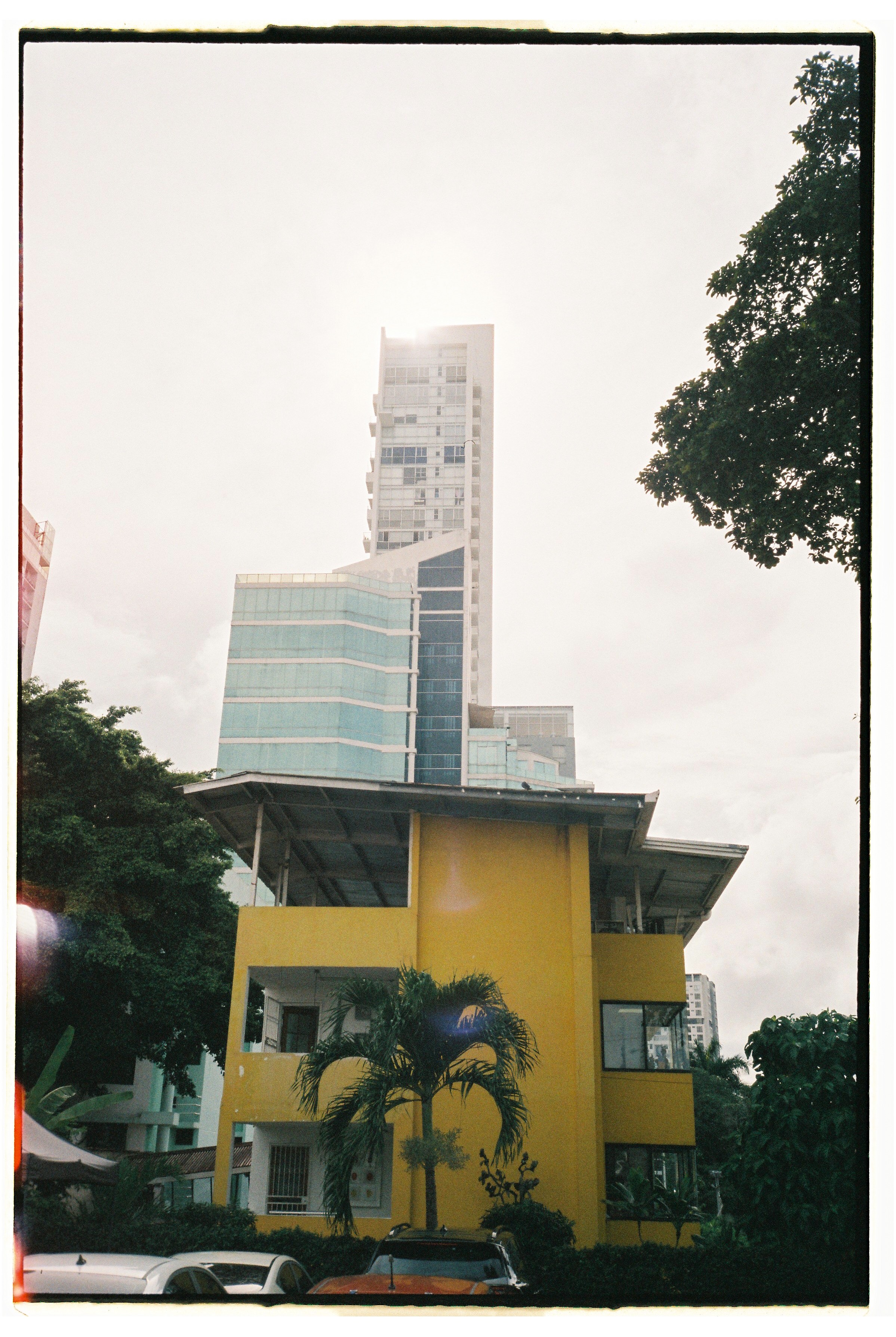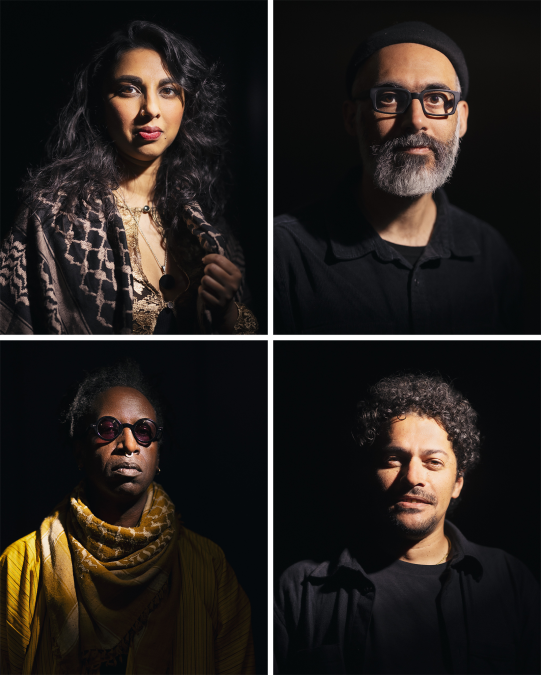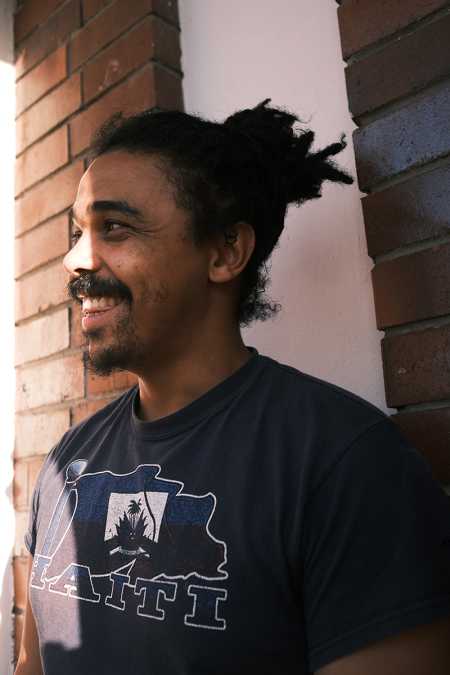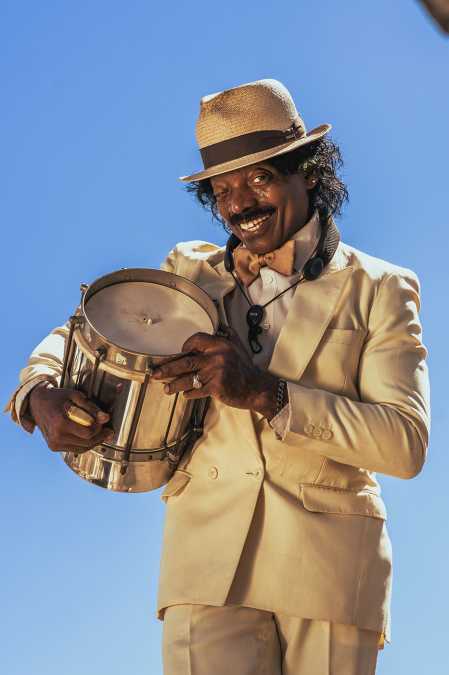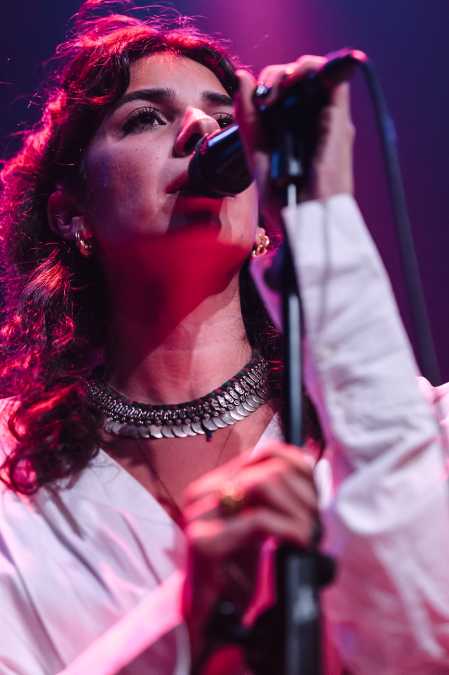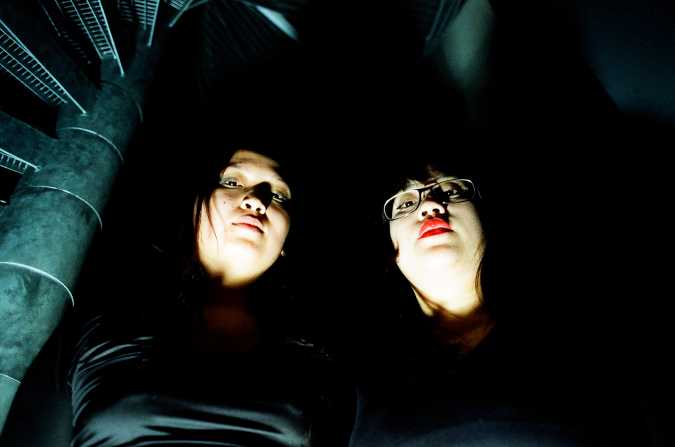Interview: Aquiles Navarro (River Down Records)
River Down Records – a COSMOS 2025 Embassy – is a label from Panamá City, dedicated to documenting and developing the creative sound of Panamá. With over 15 digital releases to date, River Down Records has produced new works and supported artists with an already established vision, helping them expand their creativity and reach a wider audience. Inspired by the spirit of Río Abajo, River Down Records celebrates the rich culture that Panamá has to offer.
Here, we’re catching up with River Down founder Aquiles Navarro, who is also a celebrated trumpeter (Irreversible Entanglements), DJ and composer, about the unique concoction that is Panamanian music.
Before you dig in: For our monthly COSMOS radio show on Refuge Worldwide, Aquiles has put together a one-hour special. We highly recommend tuning in while reading. All photos in this piece come courtesy of River Down Records. Aquiles’ portrait shot is by Roberto Garofalo.
Aquiles, most people will know you as a founding member of Irreversible Entanglements, or your duo work with Tcheser Holmes. Where were you in your career when River Down became a thing?
I started it in 2020 in the middle of the pandemic. I didn't even have a computer. I mean, I had an old Toshiba. Then, for some reason, I bought a Mac, and the first thing I thought was, man, this shit is made for dummies. It's the easiest fucking thing, no wonder y'all love this shit and make it make so many things.
Not necessarily the first thought that everyone would have while the boat is sinking…
I was in New York, at that time it was not too bad. But I knew there were others back in Panamá that probably didn’t have shit. But we have had this music, you know, everyone was digital at home. I remember being on the rooftop in Brooklyn one of those days and thinking about Río Abajo…
That’s the place where you grew up?
That's where my school was, in Rio Abajo, so I spent a lot of time there. That's where I learned music. It was and is the cultural mecca of Panamá City. Everyone from Dexter Gordon to James Brown passed by. Mostly because of the gold trade via the railroad. Before the canal, the railroad would connect the Pacific and the Atlantic. A lot of stuff from New Orleans was going to California through Panamá. That's why there were a lot of US people, and a lot of cultural entertainment in Panama. That area got to witness everyone. All the major acts. It’s always been musically rich. Even the church in our school: for the gospel our pastor would grab the bass and play. The drummer was a jazz drummer, too.
Is that where you first experienced live music?
No. We had everything in terms of music: party music, dances… there's always been music, even in the busses. My parents are huge salsa dancers. Especially in the 70s, salsa was a huge. The labels would send singles to Panamá, and if they were a hit there, then they would know that, okay, this is a hit everywhere. For those labels, Panamá was like a utopia: They have money. There's US influence. They use the dollar.
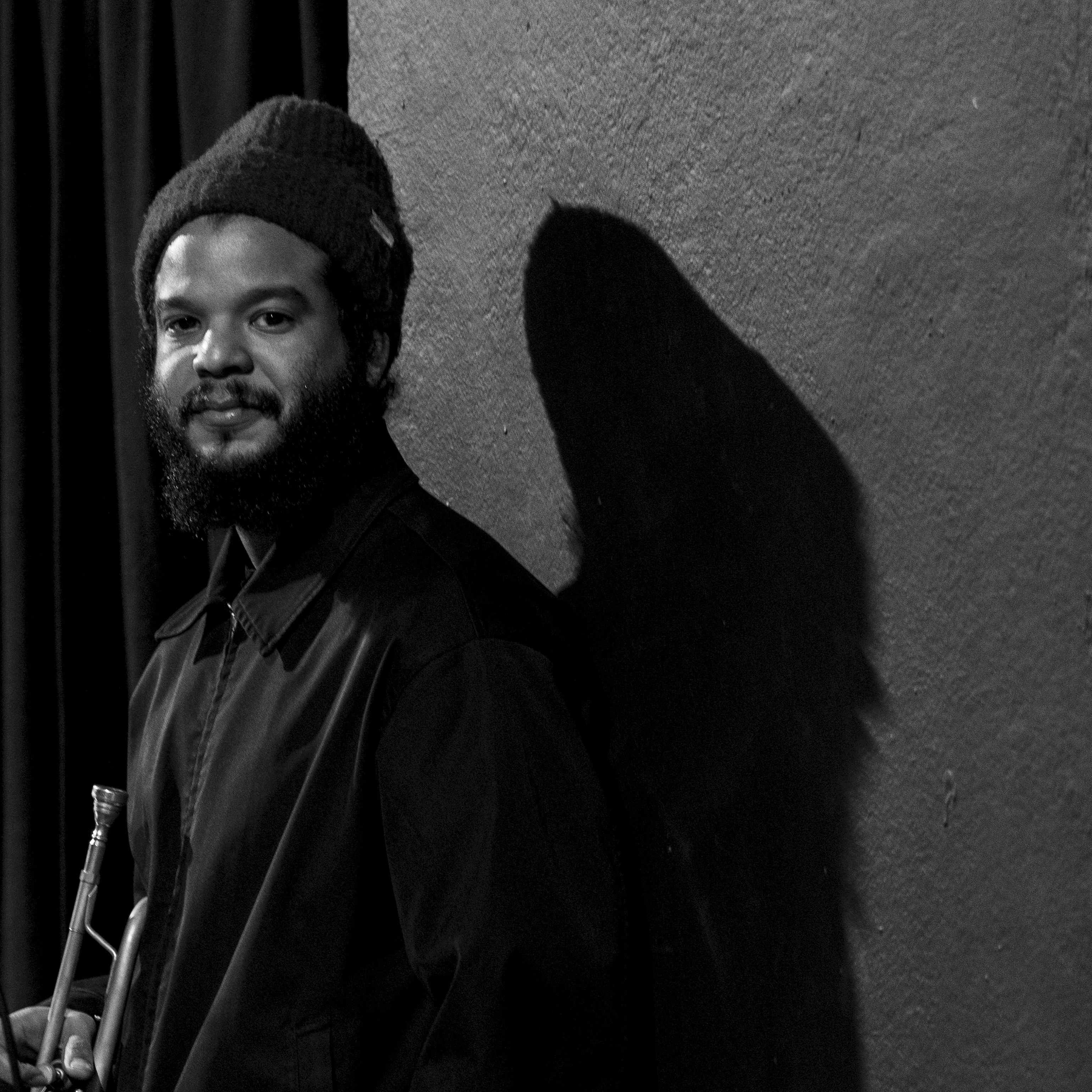
Who besides your parents hipped you to music?
The first person I thought of was my teacher, Carlos Garnett. And River Down also started with him in a way. When I was leaving Panamá, I saw him have to battle with UK reissues and repressings. They probably thought he was dead or they didn't get to him, you know?
They reissued him while he was alive without permission?
Exactly. So I saw this older man all the way in Panamá, and he might have had some contracts in the UK, and there’s still love for him out there. To clear things up, we had to go through some archives and documents. Eventually the catalog got sold many times. It’s an eerie, weird thing, that somebody was able to get them, you know. For River Down, it’s really about the process of documenting. If we don't do it, somebody else will do it. And sometimes it will be a person who just does it for money. I, however, just want to do it so it exists. So we have a timeline for all these beautiful things that have happened over the time. But with Garnett, I wanted to put out a record – actually the last record that he made. He self produced it and made CDs.
I told him, if you put it on Bandcamp, I can sell it for you and keep sending checks to your wife. For his record, we did a digital remaster and put it up. And right away I got into some shit. Carlos Garnett said like, ‘Hey man, my old label from New York contacted me. They give me 4k if they can put that record out. But you have to take it down’. Okay, I took it down. The other label, of course, never put it out. So right away we got into some shit. But we didn’t care because we wanted to document what we're doing. And create this infrastructure where we can all eat from and maybe help others.
One of the first releases I heard from the label was by Ricardo de Leon. Tell me a bit about him.
Ricardo’s was the first, besides me and Garnett, that was already recorded. We kind of grew up together. He's always been a great composer. He's a couple of years older than me, and he got into music super early. He's from the countryside, and then he moved to the city in his late teens. He hooked up with Victor Paz, who was the trumpet player that I studied with. And they played a bunch of gigs, like boleros, you know. He’s super involved in every aspect of music. And he’s just an amazing soul, like, he has no evil in him. He just can’t bring himself to say a bad thing. He is super idealist with the music, but also demanding with it. On my duo record with Tcheser, there’s a Panamanian guitar that I used as the base for the song, “Pueblo”. That's him.
So I was like, man, record something and we can get it out. And it worked – he went to Portugal to perform, which was important to him. After that he went to Spain.
What do you mean by that?
I showed you some of those videos of Panamá, because it can be very difficult to get out. Just mentally, you need to feel that there's still hope for musicians to make it. In Panamá they play gigs where people go to see music, but not specifically to see him, or anyone. There's no culture of appreciation for like, oh, let's go see the music of Ricardo. It's entertainment, background music. If you're really about the music, that shit is depressing. As for his show in Portugal, he hadn't played a solo show, probably ever. It changed his life. And because he's such a good soul, his positivity now affects others that he's around with. So now they want to level up as well.
But yeah, the label has never been for profits. That's not even a question. The fact that this music exists, it’s something bigger. And now even more so, since it's properly rolling. It's been really helpful to have this relationship with Miguel {Ortiz} in Panamá City. A lot of projects are possible because he has a studio in his house. I would have never thought it would play out like this. Like, I did feel it and know it. But you know, the beauty of it is that you never know how exactly it's going to play out.
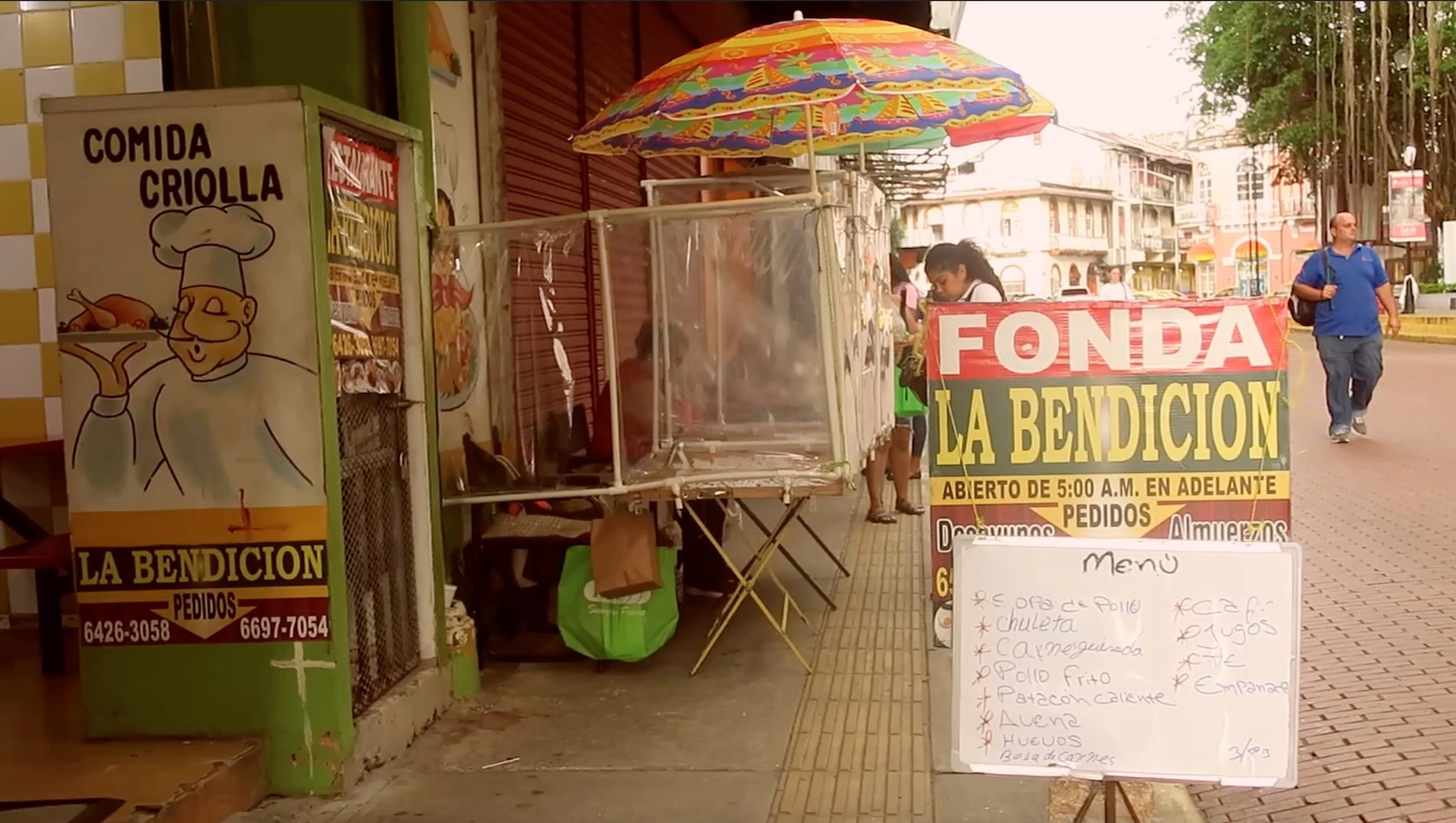
That has to be part of the appeal. Otherwise you would never start anything. Tell me about some of the difficulties you encountered since you started the label.
You start to see quickly who really wants it.
What we’re trying to do is to just get started. So that the artists can get into the habit of feeling how something develops from an idea to the final stage. Which then becomes the beginning of another thing. The whole process of picking the album art, track names... For the artists we are working with, this is already a sign like, damn, somebody's listening. Somebody is paying attention. Yes, we are. And hopefully they can create more and eventually live from this, you know.
Is there an infrastructure in Panamá City? In terms of independent labels, or a connected scene?
That's a great question, because there is, in a way. But it's also very contaminated with extreme capitalism. They view Panamá as a huge mall, they’ll move people only into spaces where the masses are supposed to go. Like, you go to the movies, but you don’t really go into the nature. There’s so much nature! The people don't just take a road trip, out of fear. So things that move masses or sell alcohol, or things like that, they do have an infrastructure. Mainstream music has an infrastructure – from the radio to the TV to some forms of popular music. Also the folkloric popular music, like tipico, they have labels. One of the more iconic labels from there is called Tamayo. They came from Colombia.
As for smaller independent labels, I don't think they even exist, really. So there's no sense of being part of a movement. Everyone thinks they have to be signed to a big label. And those companies, they don’t usually include you as much. It's like, okay, we produce your record, but we own 99% of it. That kind of shit, you know.
Almost like an unnecessary luxury.
Yes, but it's so essential, and it's all there already. All we're doing is turn on the lights so people can start to see what's actually there, you know?
The other challenge is the self-conflicting between the people themselves. The envy is the other cancer that doesn't allow things to happen. So suddenly, I find myself in a position to say, ‘do you want to do what they did to you, or do you want to change it up?’
Did you experience a lot of that?
Gatekeeping? Yeah, man.
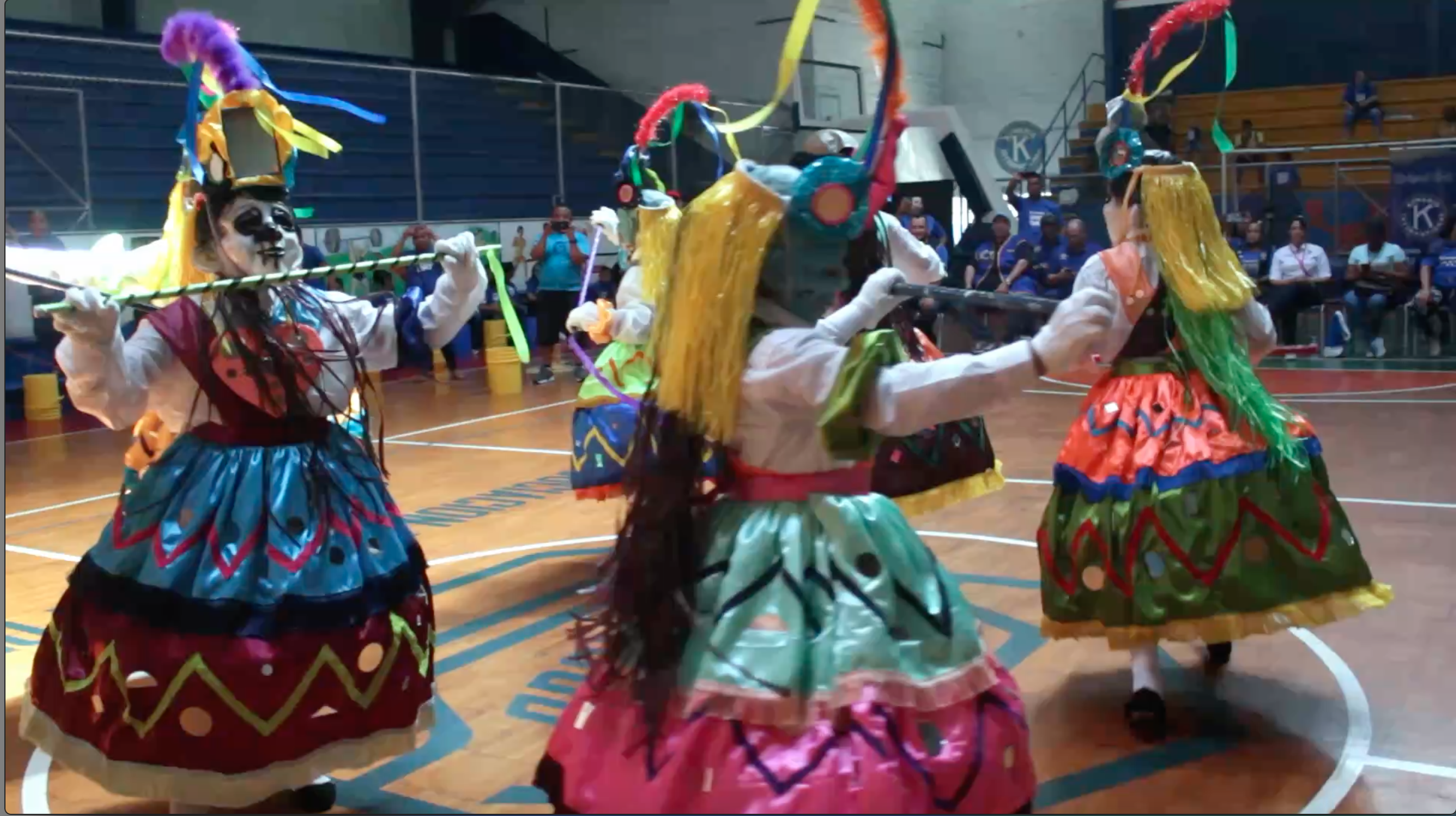
Help me with the timeline, you grew up in Panamá. Then your family went to Toronto for some years?
Yes, I was like eight years when we moved back to Panamá. Moving from Canada back to Panamá was crazy. First of all, it was so green, and it was completely different. So I was just absorbing. I had to learn how to be Panamanian. The education was very different. The music and other things were amazing but the education was mostly “memorize this and that”. It stopped being stimulating.
This is a broad question, but what does it mean to run a label like River Down these days? What kind of resources do you have to have, what kind of skills? Because today it can literally just mean to have a Bandcamp page and a phone full of connections. You already mentioned your partner Miguel and his studio in Panamá City…
He came on board almost two years in, when I went back to Panamá for a couple months to redeem my visa. But the lockdown in Panamá was so bad that we had to stay in a place for hours. After 6pm or 7pm you couldn't drive. So I would get to his place, and we would have something in mind, and didn’t leave the place before 5AM the next day. We just spent weeks and months going into the music. But as for the concept of a record label: I think the fact that I was already working with International Anthem helped a lot. I always wanted to share music. It just made total sense. I had already put out some Bandcamp stuff with Tcheser. But the label was more intended to write down our own history. We need to be able to tell our own story. Because it's a long, long game. It's more like a Smithsonian Folkways label, I guess. We just do a bunch of things differently.
For example, with Gavina’s record, we put it on Bandcamp. And then I told her that I don't put the music of River Down on Spotify. But if she wants to do it, she can go ahead and do it. She controls that. What label is just gonna give an artist the product? And this is going back to the question whether if I suffered from gatekeeping – yes. There have always been people who didn’t let you do your thing. But because you are a kid, you’re just like “what’s going on”. But then as an adult you start to see it for what it is. Even up until a few years ago, there's been this jazz club in Panama that I couldn't play. I was on a list that couldn't be booked there because the person that runs it doesn’t like me.
In any scene, you'll encounter that personal grudges create this kind of ‘crabs in the bucket’. You're getting pulled down by the others when you get some kind of recognition.
Yeah, but you know, the crabs in the bucket, it's not about the crabs doing that. It's the hot water that makes them loose control. These kinds of people, however, they gave up on being authentic and being real to their soul, and they've adapted a mentality that crushing is the way. Instead of opening up. It's like having a team and everyone is a center field. But everyone's characteristics are different. You’re going to have the shooter, because his mind is different. The Portero, the goalkeeper, is different. In a team, you gotta have different talents. So if you're like, 15, 16, and you're already showing hints of, “I want to do some other shit”, then they start gatekeeping. Over money, or they go “no, this scholarship is not for you”. Unless you play the game and they pimp you out as this poor kid, you know? They usually go for kids that are in search of some kind of parent figure. But I have my mom and dad, so, like, they couldn’t just talk crazy to me.
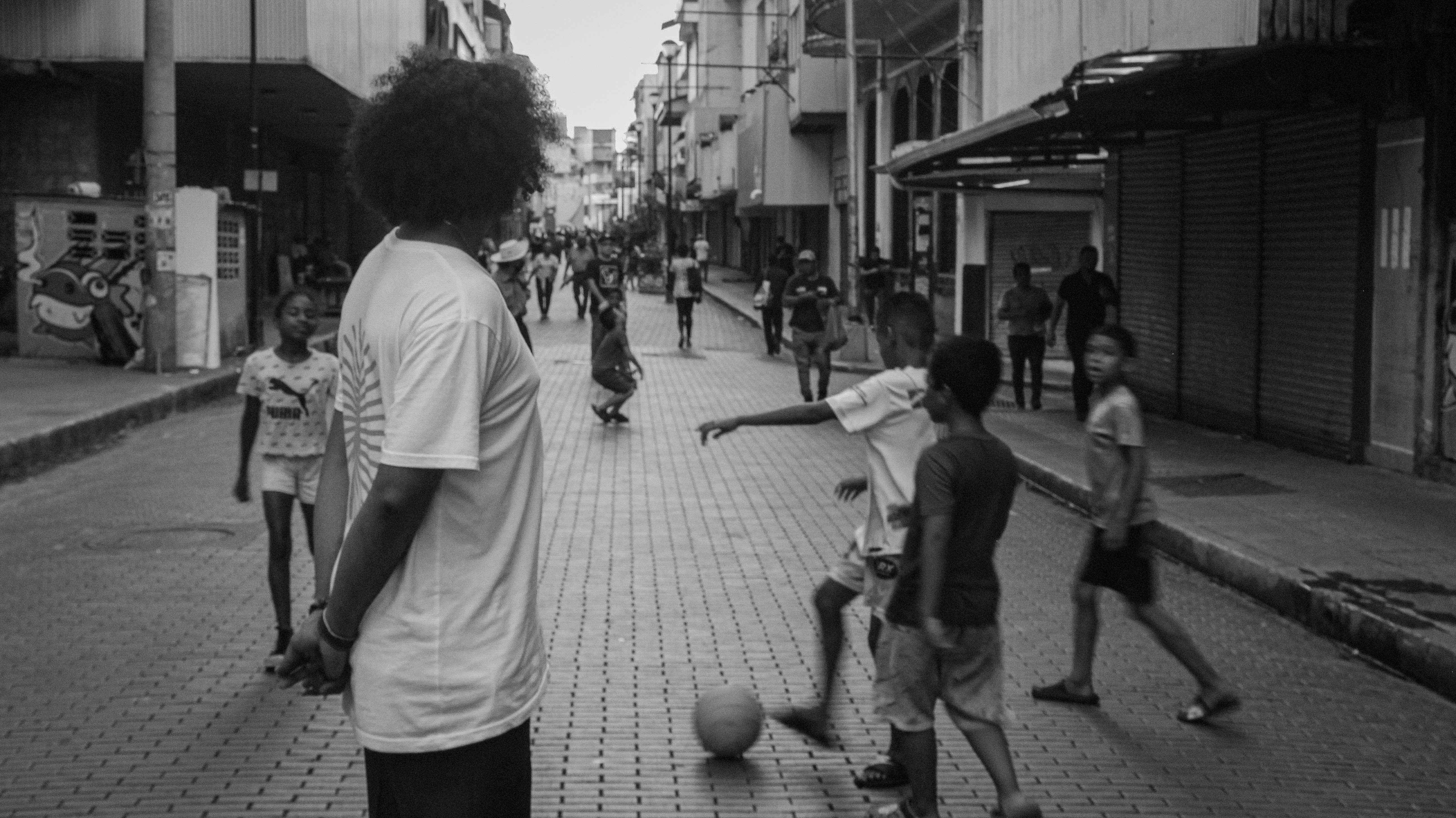
You just mentioned Gavina, who put out some amazing, very modern records on River Down.
It’s interesting helping someone like Gavina, who has her own vision. The project needed a different kind of studio and producer. I wanted to see it happen.
When you met, she was already a fully-formed artist?
I would say so, yes. I heard her on one of those videos that I sent you. It was like some version of reggaeton, but it's different.
It has a ton of new R&B sounds, but also some tinges of traditional music.
She always had a vision. Her family is also very music oriented. The last track on the record, it's more of a traditional vibe but with a modern twist. She’s from the countryside. But then she relocated with her family to the city, San Miguelito. That’s where my grandma lived, and my dad grew up. I've never heard anyone in Panamá do something like she does. When the time was right, we started to do this EP. She's also a lawyer, you know.
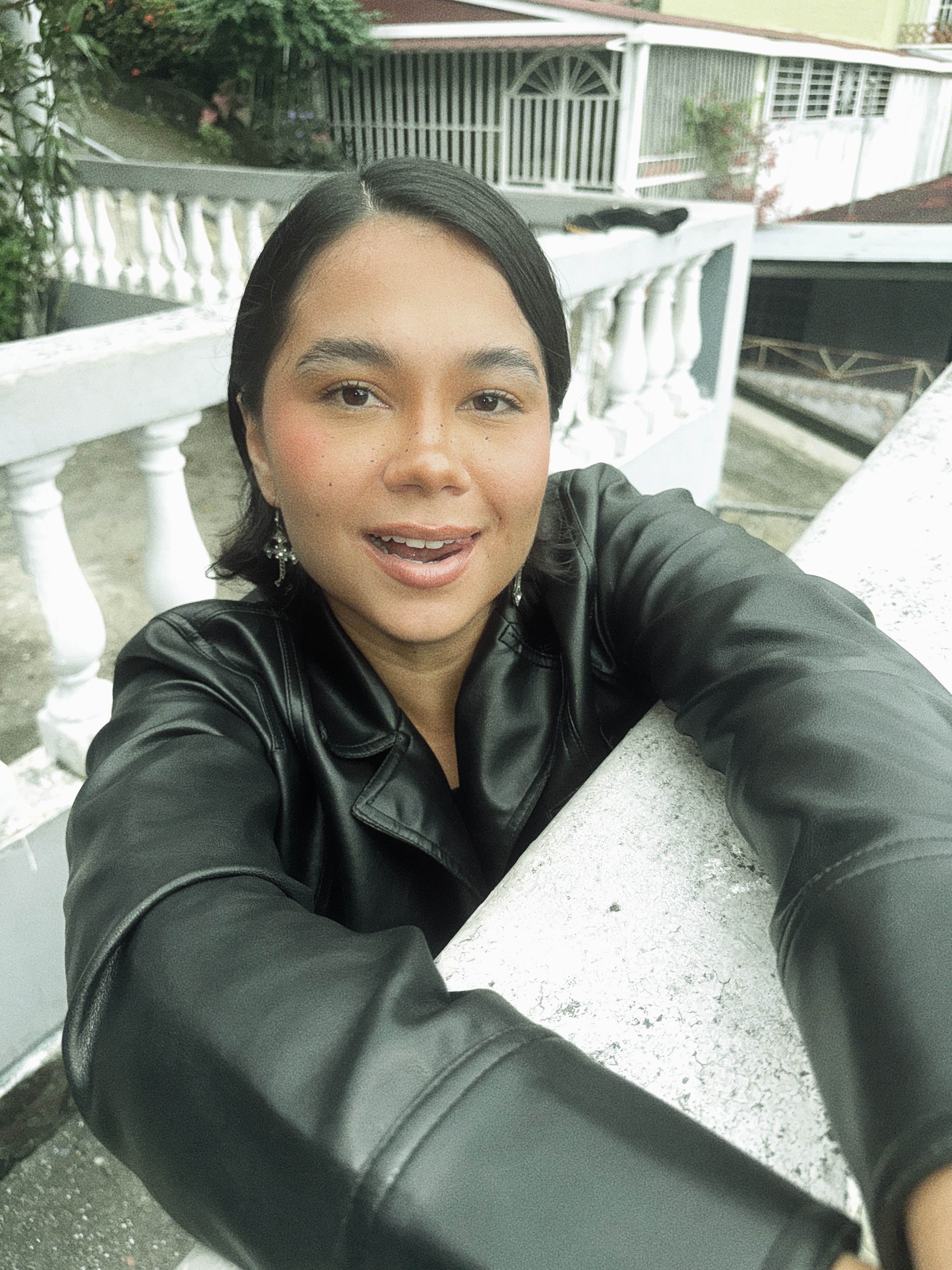
Oh, so she won’t get fucked over as a musician at all then.
Oh no, no, no, no, not at all. She's barrio, you know. But yeah, it’s so crazy when you start to work with people and everyone is so different. Working with Gavina is so different than working with Ricardo or any other person.
Is there someone else you would like to highlight from the label that you’ve been working with?
Maybe the last project that we did, Percuciones de Panama with Oscar Cruz Jr., Tonidrums, and Milagros Blades. Milagros is an amazing percussionist. All three are, I think, the best percussionists in Panamá. Their curriculum goes crazy. Having all three of them on one record, to me, represent the nuances, the spices that make Panamá. You hear tinges of Cuban batá. You also hear Brazilian samba. But while Panamá mixes all of these things, we don't get to hear these combinations even in Panamá as much. You either have to do one thing or the other. But the beauty of this record is that it allowed their experiences to be all mixed together. But to highlight something is difficult. I'm excited for what’s to come. I just hope that people take their time and explore each album at their own pace. Enjoy and find whatever you want from it.
Lastly, if someone is trying to dig more into the music history of Panamá, from traditional to contemporary stuff: Where do you start?
If they start with River Down, they would be probably be very confused {laughs}. It represents the now – and that's a crazy Panama. But to start with, maybe tune into some Spanish Reggae. Because of its popularity. It’s all over the place, so it could be nice to understand why it's so popular. On my mix for COSMOS x Refuge Worldwide, I played a track by El General. So any of these names, you could start at and branch out from there. For the more tipico/folklore world, there are many popular acts. I would go for Victorio Vergara, an accordionist. His sound can be very similar to Colombian cumbia, but it’s different. Because the Black roots in Panamá are stronger in every genre of music.
Someone that clearly has expanded the sound of Panamá is Rubén Blades. He put out this record with Willie Colón called “Siembra”. It has a seven minute song, and when he wanted to put it out, people were like, are you fucking crazy?
It's based off of “Mack the knife”, and it tells a whole story. They call him "El Poeta de la Salsa" for a reason. So if you branch out from Rubén Blades, then you branch out into the ones that came before him in Panama, like Combo Nacionales and other singers and boleritas, such as Camilo Azuquita.
And then you have jazz: Barbara Wilson or Carlos Garnett, also Danilo Pérez who is more contemporary. Luis Russell is also super important in the history of Panamá and jazz. Then there’s all this unamplified traditional music. In that category, there's tons of specific music per province. It’s kind of crazy, because as soon as you cross to Costa Rica, the sounds are different. It's just because of, like, the canal and what the people that have brought over from Jamaica, Barbados, India, China. Haitian Compas are huge in Panamá, too. As I said, when I came back to Panamá, I had to learn to be Panamanian. The same was true for the music. I had to experience it, to see how diverse it is.
